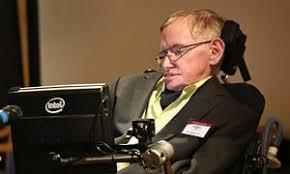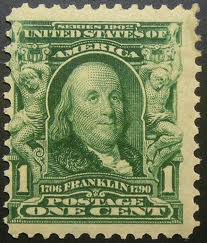 Stephen Hawking had a horrible illness, given only a few years to live.
Stephen Hawking had a horrible illness, given only a few years to live.
He lived them, and then fifty more. He had ALS (motor neuron disease) which destroys muscle control. There is no cure or treatment.
You know that sci-fi trope of the disembodied brain in a vat? That was Stephen Hawking, more or less, because his body was so ruined he might as well have had none.  All he had was his brain. But what a brain.
All he had was his brain. But what a brain.
So despite losing virtually everything else, against all odds his brain kept him going for over half a century. To me, this is the Stephen Hawking story. I’m unable to appreciate fully his scientific achievement. But I’m awed by its being achieved in the face of adversity that also defies my comprehension. Stephen Hawking represents the godlikeness of the human mind.
Another awesome thing about humanity is the ability to adapt. That’s why our species thrives from the Gobi Desert to the Arctic tundra. And as individuals we often make truly heroic adaptations to what life throws at us. Viktor Frankl wrote (in Man’s Search for Meaning) about accommodating oneself psychologically to surviving in a concentration camp. Stephen Hawking too adapted to horrible circumstances. Perhaps he did not curse the fates for that, instead thanking them for vouchsafing his mind.  Which, undaunted, he employed to get on with his life and his calling.
Which, undaunted, he employed to get on with his life and his calling.
That included authoring the least read best-selling book ever, A Brief History of Time. I actually did read it, and was on board till the last chapter, which kind of baffled me.
A character conspicuous by his absence in that book was God. We have trouble wrapping our heads around how the cosmos can have come into existence without him. Of course, that merely begs the question of where he came from. But Hawking’s scientific work (as partly embodied in his book), while not dotting every “i” and crossing every “t” in explaining the existence of existence, did carry us closer to that ultimate understanding. He didn’t conclusively disprove God — but did make that superstition harder to sustain.  (And why would God create ALS?)
(And why would God create ALS?)
Hawking was a scientist, but not a “hands-on” scientist, because he soon lost use of his hands, could not even write. Communicating became increasingly difficult. Only thanks to advanced computer technology was he able to produce that familiar mechanized voice — in the end, only by twitching a muscle on his cheek. This too a triumph of mind over matter.
And so it was literally only within the confines of his brain that he worked, probing at the profoundest mysteries of the Universe by pure thought alone. (That was true of Einstein as well.) Of course, lots of other people do likewise and produce moonshine. Hawking (like Einstein) produced deep wisdom, expanding our understanding of the reality we inhabit. An existence upon which his own frail purchase was so tenuous.
An existence that’s poorer without him.














